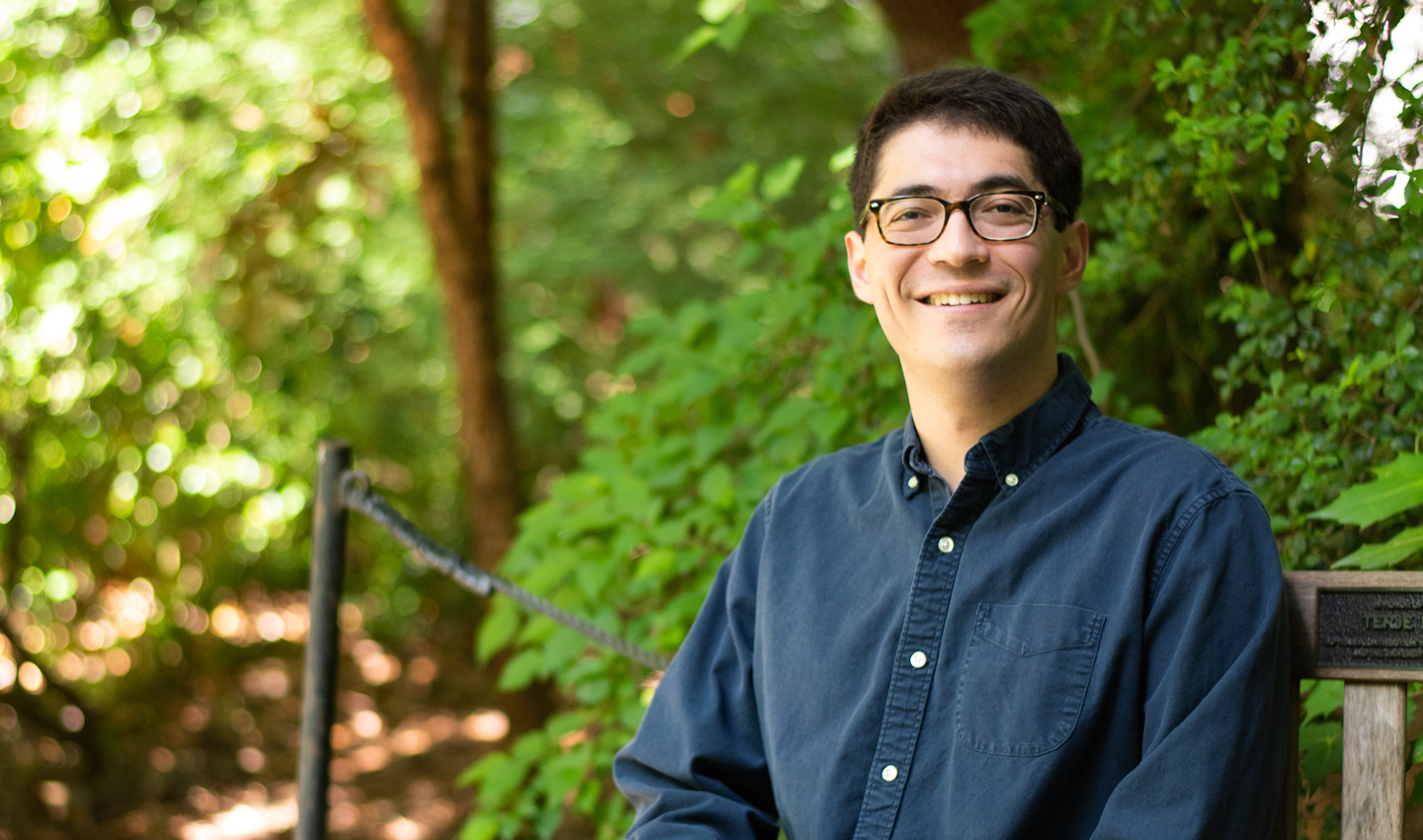Benjamin Charles Germain Lee has a wide background of work — astrophysics, work with archives, machine learning, writing for popular magazines like The New Republic — and he is now bringing those skills and diverse research interests to his new role as an assistant professor at the iSchool, where he will launch the Lab for Computing Cultural Heritage.
The lab will adopt an interdisciplinary approach — one of Lee’s strengths — to work with libraries, archives and museums to address challenges facing digital access. The lab will bring together work on machine learning, data science and human computer interaction to support interdisciplinary research and solve real-world problems.
“We’ll be looking at how to apply artificial intelligence or computational approaches to digital collections,” Lee said. “How do we understand the limitations? How can we be more critical? How can we understand the ethics of datafication, especially when working with archives with difficult histories?”
As Lee builds out the lab, he’ll be particularly interested in working with web archives, which are an increasingly important part of understanding our world.
“It’s a huge challenge of scale,” he said. “How do we manage petabytes of archive data and how do we search it effectively?”
He’s also looking at the role of artificial intelligence in public libraries and collaborating with the Digital Public Library of America.
“Above all else, I hope that the Lab for Computing Cultural Heritage will help us to understand how digital approaches can be used to benefit patrons and those whose stories are contained within collections and exhibits — not in a performative way, but in a way that deeply engages with and advances the missions of these institutions,” Lee said.
With Assistant Professor Sandy Littletree, Lee is co-advising Master of Library and Information Science graduate Ash King, ’24, who started the iSchool’s Ph.D. program this year and has a particular interest in Indigenous systems of knowledge. Lee is also actively recruiting additional Ph.D. students. He appreciates that the iSchool makes it easy to work with students and researchers with a range of expertise.
Dan Weld, professor emeritus at the Paul G. Allen School of Computer Science & Engineering, was Lee’s Ph.D. advisor. He says that a wide set of interests and skills is one of Lee’s biggest strengths.
“He is extraordinarily talented and multifaceted,” Weld said. “A true polymath is what I wrote in his letter of recommendation. … He’s superb with algorithms and theory, but his heart is drawn to the social and informational sciences.”
Beginning winter quarter, Lee will also be teaching an MLIS course on search and discovery for digital collections.
“It’s an opportunity to teach students about digital collections — and how we make those digital collections available to wide audiences,” Lee said.
Lee’s higher education began at Harvard College, where he double majored in astrophysics and mathematics. While working on his undergraduate degree, he got interested in Holocaust studies, to which he has a personal connection through his grandmother, who survived Auschwitz.
After graduation, he was the first digital humanities associate fellow at the United States Holocaust Memorial Museum. While there, he worked with the International Tracing Service archive, which preserves material related to the Holocaust. The archive was set up for tracing individuals, but wasn’t as well suited to other types of research. Lee used machine learning to help make the archives more easily searchable to different users.
That fellowship’s interdisciplinary aspect, combining humanities with science, is something Lee has continued to enjoy in his work. While working on his Ph.D., he was an innovator in residence at the Library of Congress and created Newspaper Navigator, a machine learning-supported system to help users search images in 16.3 million historic newspaper pages. Last academic year, he was a Kluge Fellow in Digital Studies, also at the Library of Congress.
From his prior work at the UW, Lee already had connections with many people in the iSchool. It’s one of the things he enjoys about the University of Washington, that different programs aren’t siloed off from each other.
“We are so lucky to have recruited Ben to the iSchool,” said Nic Weber, an iSchool associate professor. “He’s a perfect fit with his computational skills and his deep knowledge of humanist reasoning and culture.”
Weber says that Lee combines the strong technical skills of a computer scientist with a deep understanding of the humanities. He also thinks Lee’s experience communicating about his ideas to a broader audience — including for publications such as Wired, Gawker and Current Affairs — shows what a strong thinker and communicator he is.
“His students are just as lucky as his research colleagues,” Weber said. “Ben’s knowledge is very diverse and he has an impeccable ability to explain abstract concepts in very concrete terms. And, besides being a brilliant scholar, one of the things that impresses everyone who interacts with him is Ben’s generosity.”
